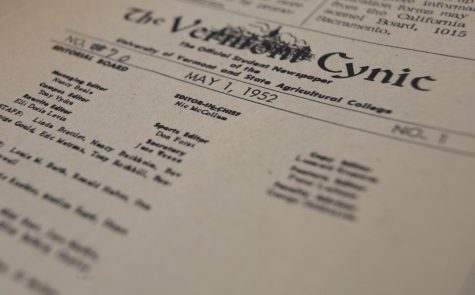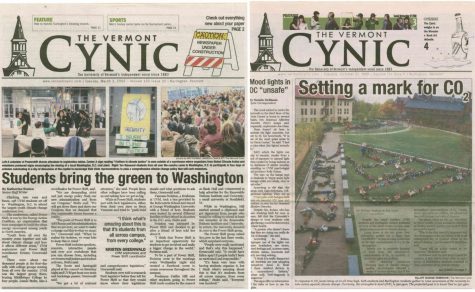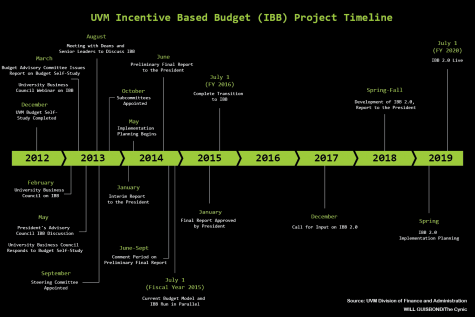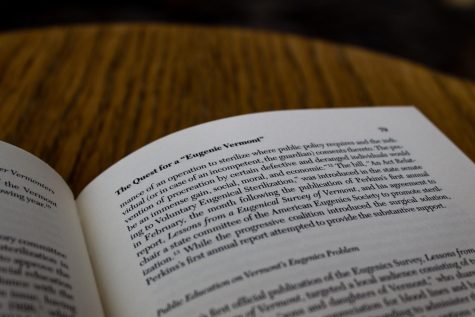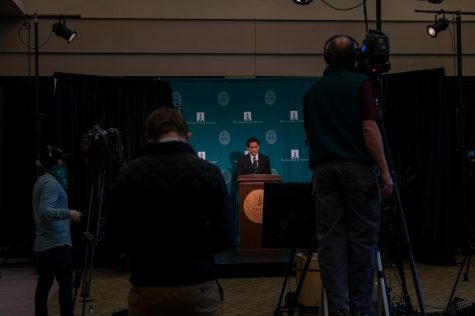Messing With the Market: Don’t Bite the Hand that Feeds You
Finding affordable housing in Burlington has been a challenge for many, especially in recent years.
UVM students have been feeling the squeeze too. Chris Dubois a second year commuter student lamented, “I tried to find an apartment before the semester started, and there wasn’t anything available for under five-hundred dollars anywhere near campus.” As disturbing as this is, the situation is even worse for working class families who face some of the highest rental prices in New England, on top of everyday family expenses.
In response to this, Progressive Party city council members Phil Fiermonte and Tim Ashe are pushing for a rent control policy in Burlington, which was ultimately rejected. As Mr. Ashe put it though, “I am under no illusions that our resolution, or similar ones like it throughout the country, are perfect solutions.”
The proposal aims to control the annual increase in rents, not to set an overall cap. According to John Briggs October 11th article in the Burlington Free Press, it would have required landlords to give “advance notice of annual rent increases of more than 5 percent.”
It would also make use of an appeal process in which the landlords would need to justify increasing rents over 5 percent. Mr. Ashe described the proposal as being, “at the starting line of a marathon.” As it turns out, the proposal did not come close to finishing that race, but it underscores the need for an effective affordable housing policy.
Ashe described his motivation for the proposal with this: “Do you think our current rental market works for hourly wage workers? Should 40, 50, or 60 percent of income be going to rent? In what are often mediocre apartments? Are rental units currently receiving the investment that critics say will not be there in a rent stabilization program?
They do not like to answer those questions because the truth is that for most hourly wage workers (the ones who work in our stores, restaurants, etc.) the system stands like a brick wall before them.”
Rent control, or putting a cap on rents, has been near universally rejected by contemporary economists; housing markets function just like any other; it all comes down to the basic supply and demand. People often ask “why does it cost so much to rent in Burlington?”
There are several factors, including arguably overvalued property, and thus high property taxes, but the most basic answer is: housing prices are so high because people want to live in Burlington, and are willing to pay for it. Renters would not be charging so much if people were not paying it, any attempt to lower prices must take these basic facts into account.
Demand, or what consumers are willing to pay, and supply, what the seller is willing to provide their goods for, will tend to balance out in a free market, and reach a market price, or equilibrium. However, when a seller is legally required to provide their goods at less than the market price, a shortage is produced. This shortage is caused by sellers leaving the market because they are unwilling to provide their goods below market price, and by additional consumers entering the market because prices are lower. The end result is more would be tenants and fewer apartments.
For a housing market, this means the landlords will be forced to supply their product below market value. As Ashe pointed out though, in his correspondence with The Vermont Cynic, his proposal is not a cap on rents, it still allows for an annual increase of 5 percent. So it might not be entirely accurate to compare it to all out rent control.
It would likely only cause a reduction in the supply of apartments if neighboring markets were to become significantly more expensive than Burlington. This situation might be unlikely considering apartment prices have increased 4.4 percent since 1995 and the proposition allows for a 5 percent increase.
However, if a large rent disparity between Burlington and its neighbors were to emerge, the logical action for landlords would be to exit the market and enter a more profitable industry or move their operation to the non-rent controlled area. Also, as prices in Burlington would be lower, demand to live here will increase, putting further strain on already low vacancy rates.
The resolution could potentially harm investment, too. Burlington is a growing city, and more housing will be needed to accommodate the growing population. However, developers might be reluctant to invest in a market with a price control, when they could just as easily enter other fast growing markets in neighboring areas without the risk of losing money in the future because of price controls.
The fundamental assumption here is that the market price of apartments would increase more than 5 percent a year. If prices would have naturally have grown less than 5 percent a year, which is completely reasonable, then the resolution could have some positive effects. Notably, it would prevent the scenario where a landlord raises rent from say $750 a month, to $1000 at the drop of a hat.
Trying to control the market is a tricky business; history has shown time and again that artificially restricting markets leads to trouble. The infamous rental market in New York City is a prime example, where vacancies in rent controlled buildings are virtually zero, and prices in non rent controlled buildings are artificially high. The push for this resolution was a positive sign in that it at least shows that the city is attempting to do something about the housing issue.
Ward 7 city councilor Ellie Blais indicated as much in her statement to the Cynic “Rent in Burlington is outrageous, it really is, but I don’t think rent control is the answer.”
Exploring a limited rent control or rent stabilization program is worthwhile, but there are better ways of dealing with the housing issue than price controls; the most obvious is to find a way to reduce demand for apartments. This can be accomplished relatively simply, albeit not easily, by putting more pressure on UVM, and Champlain College to build more apartments for their students.
If the apartments were competitively priced and close to campus, potentially thousands of tenants could be pulled out of the general housing market, greatly reducing demand, and thus forcing landlords to lowering prices, and improve the quality of their properties.
Economists have shown that rent control causes more problems than it solves, even Noble Laureates as far apart as Milton Friedman and Gunnar Myrdal, who represent Libertarianism, and Sweden’s “Welfare State” respectively, are in agreement that rent controls are ineffective and damaging.
There is no debate that working people are being hurt by high rents, but rent control by whatever name might only exacerbate the situation.
The council made the right move in rejecting it, instead the city should look into promoting larger apartment buildings, and put pressure on UVM and Champlain to continue building more student housing, or reduce enrollment.
If either demand for apartments can be reduced, or the supply increased, then landlords will be forced to lower prices. We should work with the natural tendencies of the market, rather than attempting to control it.


